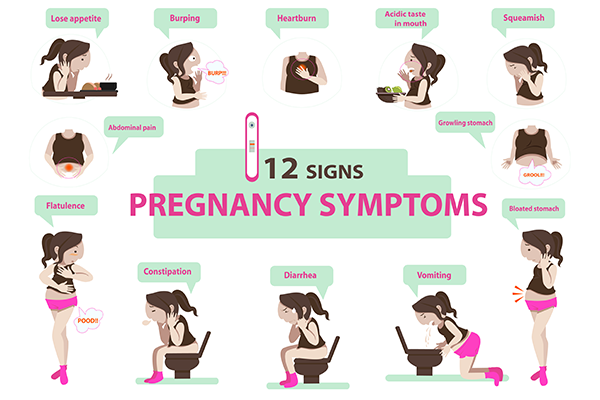
Pregnancy is often described as a life-changing experience—but let’s face it, the reality isn't always so picture-perfect. For many mums-to-be, one of the toughest challenges during early pregnancy is dealing with constant nausea and vomiting. While it’s often considered a normal part of the journey, it can still take a serious toll on your daily life, making even the simplest tasks feel overwhelming.
But worry not—while vomiting in pregnancy is a natural and usually harmless condition, there are several effective ways to ease the symptoms and reclaim some peace during this transformative phase. Whether you're dealing with a mild queasiness or relentless nausea, this guide offers science-backed and safe methods to help you feel more in control.
Synopsis
Understanding Why You’re Vomiting During Pregnancy
Before diving into solutions, it helps to know why this is happening. Pregnancy-related vomiting is largely due to hormonal changes, particularly rising levels of human chorionic gonadotropin (hCG) and oestrogen. These shifts affect your digestive system and make your stomach more sensitive, especially to certain smells or foods.
Mild to moderate vomiting is common, but if it becomes severe and leads to dehydration or weight loss, it could indicate a condition called hyperemesis gravidarum, which requires medical attention.
Tried and Tested Tips: How to Stop Throwing Up While Pregnant
Here are some helpful remedies and habits to reduce or even prevent vomiting during pregnancy:

1. Eat Small, Frequent Meals
Large meals can overload your digestive system and trigger nausea. Instead, opt for smaller meals spaced every 2–3 hours. Choose bland, easy-to-digest foods like toast, rice, bananas, or crackers—especially when you're struggling with how to stop throwing up while pregnant.
2. Avoid Triggers
Every pregnancy is different, and so are the triggers. Strong odours, spicy foods, or even brushing your teeth might cause nausea. Track your triggers in a journal and avoid them whenever possible. Being proactive is key to figuring out how to control pregnancy vomiting.
3. Ginger to the Rescue
Ginger is a time-honoured remedy for nausea. Sip ginger tea, chew ginger candies, or add freshly grated ginger to warm water. Studies support its effectiveness, making it a go-to solution for those seeking how to reduce vomiting during pregnancy naturally.
4. Stay Hydrated—Smartly
Dehydration can make nausea worse, but drinking large amounts of water at once can also trigger vomiting. Try taking small sips throughout the day. Coconut water, electrolyte drinks, or sucking on ice chips can also help.
5. Vitamin B6 Supplements
Vitamin B6 has shown promising results in reducing pregnancy-related vomiting. Speak to your healthcare provider about safe doses before starting any supplement, especially if you’re researching how to prevent vomiting during pregnancy.
6. Get Plenty of Rest
Fatigue can heighten nausea. Prioritise sleep and take short naps during the day if needed. Rest is one of the most underrated but effective ways to address how to stop vomiting in pregnancy holistically.
7. Acupressure and Wristbands
Some mums-to-be find relief through acupressure wristbands, which apply pressure to a specific point on your inner wrist. This technique, rooted in traditional Chinese medicine, may help reduce nausea without medication.
8. Try Cold Foods Instead of Hot
Hot foods often emit stronger smells, which can be a trigger. Cold meals like yoghurt, fruit, or chilled sandwiches can be gentler on your senses and easier to stomach.
9. Brush Your Teeth After Meals (But Not Right Away)
Dental hygiene is important, but brushing your teeth immediately after eating can induce gagging. Wait at least 20 minutes post-meal, or use a milder-tasting toothpaste.
10. Avoid Greasy Foods
Greasy foods are harder to digest and can worsen morning sickness. Switch to baked, steamed, or boiled meals with lighter oils or healthy fats like avocado or olive oil. This change can make a big difference in how to reduce vomiting during pregnancy.
What About That Yellow Vomit?
Waking up and vomiting yellow bile can be especially unsettling. This typically happens on an empty stomach and is due to bile from the stomach lining.
If you’re wondering how to stop yellow vomit during pregnancy, here are a few solutions:
-
Eat a small snack (like crackers) before getting out of bed in the morning.
-
Don’t go long hours without food.
-
Sip warm water with a slice of lemon upon waking.
-
Consult your doctor if it persists, as it may need professional evaluation.
When to Seek Medical Help
If vomiting becomes so frequent that you can’t keep food or liquids down, or if you’re losing weight and feeling weak, it’s time to seek professional care. Severe nausea could point to hyperemesis gravidarum, which requires medical treatment and monitoring.
At this point, simply Googling how to stop throwing up while pregnant isn’t enough. You’ll need a personalised approach that only a healthcare provider can offer.
Final Thoughts: You’re Not Alone in This
Pregnancy is not just about glowing skin and baby bumps—it comes with its fair share of discomforts too. If vomiting is getting in the way of your joy, remember that help is available. From home remedies to professional treatment, you have options.
And for mums-to-be looking for expert guidance and compassionate care, Manipal Hospitals Patiala is here for you. With our specialised team in Obstetrics & Gynaecology and best maternity services, Manipal Hospitals Patiala offers personalised solutions for concerns like morning sickness, nutrition, and overall pregnancy health.
FAQ's
Bland foods like crackers, rice, and bananas can help. Ginger and lemon also work well.
Yes, dehydration can make nausea and vomiting worse. Stay hydrated with small sips of fluids.
If you cannot keep food or fluids down for more than 24 hours or show signs of dehydration, seek medical help.
Yes, certain medications like Vitamin B6, Diclegis, and Zofran may be prescribed by your doctor.
Eat small snacks before getting out of bed, avoid sudden movements, and keep a light meal ready to stabilize blood sugar levels.





















 5 Min Read
5 Min Read




















